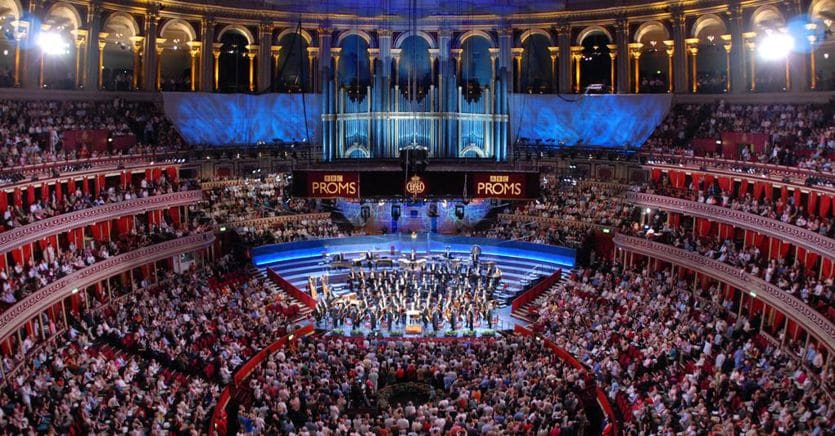«I live life now, I have no more fears»- Corriere.it

The embrace of the crowd: for the writer queue hours and ovations. "It can be seen from the choices: I think this government is fascist"
«I am living the time of my life now, now that I no longer have filters, I no longer have fears, I say everything. It's a moment of great freedom." This is perhaps the strongest message that comes from the Gold Hall of the Lingotto in Turin, where Michela Murgia speaks, in what Matteo B. Bianchi, writer and television author, with her on stage, defines "the most eagerly awaited appointment of this Show". A message of freedom, which the crowded Hall, close and involved, receives. Everyone stood up, long applause, greetings even through the transparent windows from those who remained outside and were unable to enter. The line yesterday already started three hours before the meeting.
It is the first time that the writer has returned live in public after speaking of her illness, a fourth-stage tumor from which, she told Aldo Cazzullo in Corriere, "there is no turning back". She appears both strong and sensitive, smiling, protective and accomplice towards the loved ones sitting in the front row, part of the queer family on which, with a shared choice, she has opened up more precisely in recent weeks.
It starts with the book, Three bowls (Mondadori), which in turn begins with her, with that diagnosis, even if the volume is a novel and therefore, as literature almost always does, "everything is transfigured". A particular novel, composed, explains the author herself, "of twelve linked stories whose characters touch each other. All are united by being in a crisis, in the face of which, however, they do not find a solution, but seek a way to contain the disaster".
Bianchi, in turn the author of The life of those who remain (Mondadori), asks Murgia to reflect on the story of pain. «It depends on how you do it – she replies -: until you have become aware of suffering it is better to avoid, but when you've done that and you're a writer, you know words can help: opening some wounds can heal those of others.
During the meeting, the author also returns to the register with which the disease is generally spoken of. In her case, warfare doesn't work. «I can't get up in the morning with the idea of having to "fight", with spear in hand. It would be a life without peace. On the other hand it is not true that I will be defeated by cancer: we will die together, we are the same thing». Murgia says that, when she asked him why she hadn't realized it before her, where she had gone wrong, the oncologist explained to her that "the tumor comes from childhood" and that she couldn't have done anything about it. A perspective that, in addition to the record of the battle, she also freed her "from that of guilt". “It's not news,” she says, “that we're all going to die. But I would like to get to death alive."
And an act of life it is the episode, real as well as in the book, of a party with the author's clothes hanging from the trees, to be entrusted to those who love them. In Three bowls it also tells of a woman who does not want children but carries on a pregnancy for others, a friend and partner who are unable to have children. "Pregnancy and motherhood can be different things," notes Murgia. And she herself had quoted from the stage shortly before «the mother of my son Claudio, who is not my partner».
Already in the last period the author had returned to social media on the theme of the queer family: «A family in which roles are not defined but a place of organization of responsibilities in a fluid, interchangeable way; a family by choice, independent of the couple, from sexualization, from kinship, but which is nothing to the State, which will not inherit or decide for me if I cannot do so. In Germany, on the other hand, already in 2022, a bill was presented to legitimize these communities of co-responsibility".
In the final Murgia, as if entrusting a sort of "inheritance", he invites us to be free right away. Smiling, she says that she proposed herself to «Vogue» for the trip on the Orient Express and confesses her passion for fashion and runway shows, even joking about Elly Schlein: «A friend passed for "fashionista" because for once someone advised her on colours, when she always dressed in the dark.' So, she urges her: "Don't wait until you have cancer to act freely, otherwise we will still have the fascists in government".
A position already expressed, to which she also returned in the morning as a guest of the «La Stampa» stand. «I think – she explained – that this government is fascist, it can be seen from the decisions. Everything goes in a certain direction: control of bodies and personal freedom, discrimination of already discriminated communities that were beginning to obtain rights. There is no need for fascism to knock at home with castor oil. Italy hasn't really come to terms with it, it has removed it, which is why it's hard to recognize it". Finally, in Sala Oro, when asked if she considers herself courageous and "antagonistic", Murgia replies: "In a civilized country, intellectuals do what I do. And in a democracy, no one is dragged to court."
May 19, 2023 (change May 19, 2023 | 22:27)
© REPRODUCTION RESERVED











